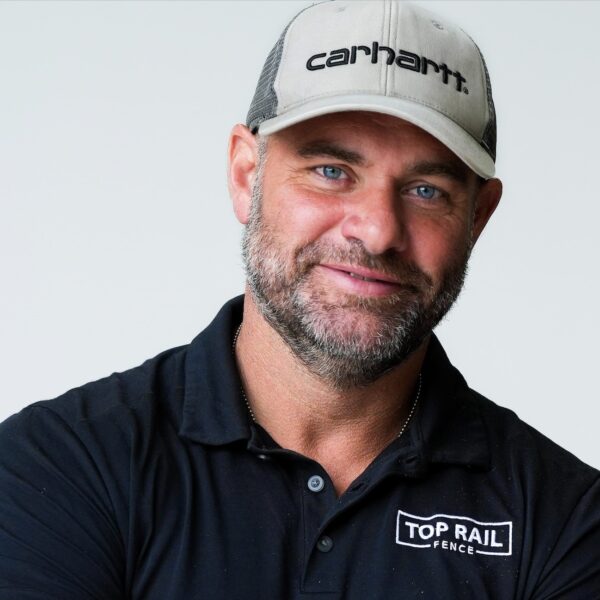The unique climate of Denver poses distinct challenges when it comes to choosing the right fencing options. With cold winters, dry summers, and frequent temperature swings, durability and material performance are key considerations for homeowners. Whether you are starting fresh or replacing an existing structure, knowing which fence installation choices hold up best in this region is essential.
Let’s explore the most effective residential fencing types that balance function, longevity, and aesthetics. Keep reading to see how wood, vinyl, metal, and composite materials compare when it comes to life in Denver’s climate.
Wood fences in Denver’s environment
A traditional wood fence remains one of the most popular fencing options thanks to its natural look and versatility. However, Denver’s climate can be tough on untreated wood. Fluctuating moisture levels and exposure to sunlight can cause warping and cracking over time.
Cedar and redwood are highly recommended because they resist decay better than other species. To extend lifespan, sealing and staining should be done regularly. A properly maintained wood fence can last 15 to 20 years in Denver.
Pros of wood fences
- Natural appearance
- Affordable upfront cost
- Easy to customize
Cons of wood fences
- Requires regular maintenance
- Vulnerable to moisture and pests
- Shorter lifespan without treatment
Vinyl fences for weather resistance
Vinyl fencing is another attractive residential fencing solution, especially for those who prefer low-maintenance materials. Unlike wood, vinyl does not rot or warp, making it ideal for Denver’s temperature fluctuations. It can also withstand moisture without absorbing it, preventing common structural issues.
The downside is that vinyl can become brittle in extreme cold, which Denver occasionally experiences. Higher-quality vinyl products are designed to resist cracking, but it’s important to choose a reputable fence company for installation.
Pros of vinyl fences
- Minimal maintenance
- Weather-resistant material
- Long lifespan
Cons of vinyl fences
- Higher upfront cost
- Can become brittle in extreme cold
- Fewer color customization options
Metal fences for strength and security
Aluminum and steel fences offer excellent durability in Denver’s varied climate. Aluminum, in particular, is rust-resistant and performs well in both snowy and dry conditions. Steel is stronger and provides greater security, though it may require protective coatings to prevent corrosion.
These fencing options are ideal for homeowners seeking both security and aesthetic appeal. While they come at a higher initial price, they often last decades with little maintenance when installed correctly.
Pros of metal fences
- Durable and long-lasting
- Excellent for security
- Low maintenance
Cons of metal fences
- Higher installation cost
- Steel may rust without a coating
- Limited privacy
Composite fences as a modern alternative
Composite fencing blends wood fibers with plastic, creating a hybrid material that offers the best of both worlds. It has the natural look of wood with the durability of vinyl, making it one of the most reliable residential fencing options for Denver homeowners.
Composite stands up well to moisture, pests, and UV exposure, making it a strong choice in climates with wide temperature shifts. While more expensive, it requires very little upkeep compared to natural wood.
Pros of composite fences
- Low maintenance
- Resistant to pests and rot
- Long-lasting durability
Cons of composite fences
- High upfront cost
- Limited design flexibility
- Heavier material requires professional fence installation
Blended solutions for Denver homes
Sometimes the best answer is combining fencing options for different areas of your property. For example, a wood privacy fence in the backyard and a decorative aluminum fence in the front yard can balance aesthetics with function.
Working with a trusted fence company like Top Rail Fence Denver ensures you get a design that complements your property and withstands local conditions. By choosing materials wisely, you’ll enjoy a fence that enhances curb appeal and provides lasting value. Contact us today for your free on-site consultation.
Fence selection FAQ
What fence lasts the longest in Denver?
Vinyl and composite fences generally last the longest due to their resistance to moisture, pests, and temperature changes.
Which fence requires the least maintenance?
Vinyl fences require very little upkeep, usually just occasional cleaning with soap and water.
How often should I maintain a wood fence in Denver?
Sealing or staining every 2 to 3 years helps protect wood from Denver’s dry summers and snowy winters.
What is the best fence for privacy?
Wood and composite fences are excellent for homeowners who want to maximize privacy without sacrificing appearance.
Recent Posts
- Why Fort Worth Homeowners Are Installing Fences in Fall (And You Should Too)
- Fall Fence Installation in North Dallas: Why Now is Your Perfect Window (Before Winter Hits)
- The Fall Fence Secret: Why Most Greater Dallas Homeowners Wait (And Why You Shouldn’t)
- Expert Tips for a Smooth Fence Installation in Des Moines



